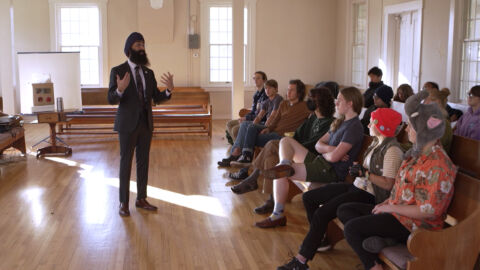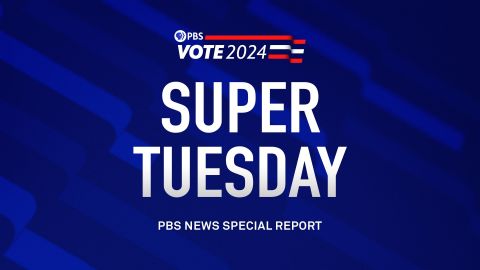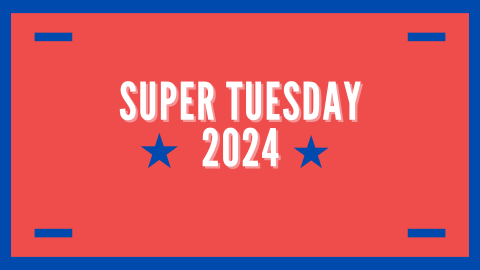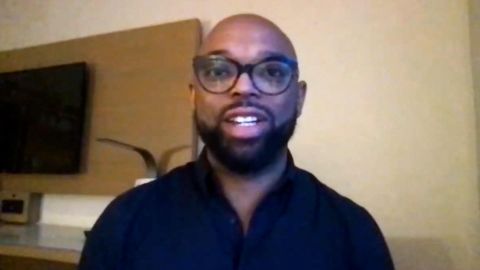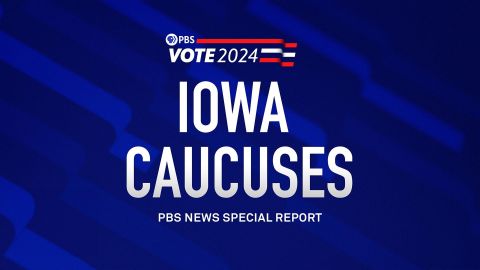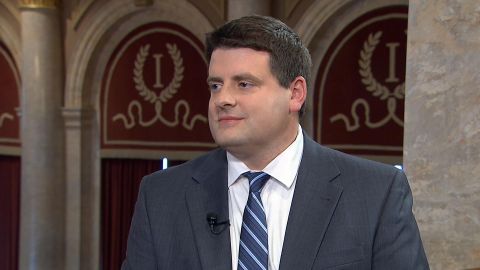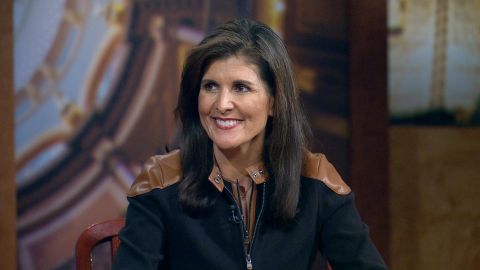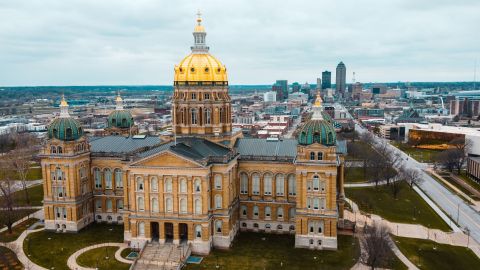State Senator Zach Wahls leads Democrats in the Iowa Senate, and he's taking a leadership role in the statewide party's rebuilding efforts.
We'll talk policy and politics with Zach Wahls on this edition of Iowa Press.
Funding for Iowa Press was provided by Friends, the Iowa PBS Foundation, the Associated General Contractors of Iowa, the public's partner in building Iowa's highway, bridge and municipal utility infrastructure.
Elite casino resorts is rooted in Iowa.
Elite was founded 30 years ago in Dubuque and owned by 1200 Iowans from more than 45 counties with resorts in Riverside, Davenport and Larchmont, Iowa.
Elite is committed to the communities we serve.
Across Iowa, hundreds of neighborhood banks strive to serve their communities, provide jobs and help local businesses.
Iowa banks are proud to back the life you build.
Learn more at Iowa Bankers dot com.
For decades, Iowa Press has brought you political leaders and newsmakers from across Iowa and beyond celebrating 50 years of broadcast excellence on statewide Iowa PBS.
This is the Friday, February three third edition of Iowa Press.
Here is Kay Henderson.
Our guest today as a Democrat from Coralville who was first elected to the Iowa Senate in 2018.
In November of 2020, his colleagues in the Iowa Senate elected him Senate Minority Leader Senator Zach Wahls Welcome back to Iowa Press.
Thanks, Kate.
Also joining the conversation, Catarina Sostaric of Iowa Public Radio and Erin Murphy of the Gazette in Cedar Rapids.
Senator, as Kate mentioned, at the very beginning of our show here, you have a new role within the state party, new role in leadership.
Tell us a little bit about that and how you see your role, pardon me, moving forward in helping the Iowa Democrats be more successful in the elections in the state.
Well, thanks, Erin and Catarina Erin.
Kay.
Good to be with you.
On Saturday, the Iowa State Central Committee for the Iowa Democratic Party elected chairwoman Rita Hart, to serve as the next leader of our party.
And in that same meeting passed a change to our state party bylaws to create a new steering committee.
That proposal was designed to help those of us who are elected officials and leaders within the Democratic Party, specifically myself, my House counterpart, leader Jennifer Conn, first and State Auditor Rob Sand, help provide some leadership and support for our state party at this really important time for Iowa Democrats.
Rob, Jennifer and I started meeting shortly after the 2022 election to start talking about how we could chart a new path forward for our party and I know that not everybody gets as excited about organizational change as I do.
But I was really, I think, excited to see the state party take this first step.
I think it's really important that we have a state party that's going to listen to Iowans and then be able to go out and execute on the changes that we need to completely rebuild our state party.
And I think that's a good first step.
So why was that needed?
Was there in the past a disconnect between I was elected Democrats and the state party and its organizational efforts?
You know, for many years, we've obviously had principal leaders of the Iowa Democratic Party, people like Tom Harkin or Tom Vilsack.
Obviously, without having somebody of that stature for the last several years, at this point, I think there has been a growing disconnect between the work that those of us who are elected officials are able to do on a on a day to day basis with our political work and the efforts of the state party.
For us, this is about better collaboration and cooperation.
I'm a big believer in what we can accomplish when we work together.
It's part of why I'm a Democrat.
And that was a big part of why when Rob and Jennifer in my cell first started having these conversations, we thought that a steering committee would be a good place to start.
But how do you figure out how to win?
Talk about steering.
Things seem to be steering in the wrong direction.
If you look at the results of the 2022 election.
Well, the number one thing that we have to do is the Iowa Democratic Party has to do a better job of listening to everyday Iowans.
I think that a lot of the challenges that we're experiencing as a party has to do from a sense that Iowans have that Iowa Democrats haven't been listening as closely as we need to.
And so I think as we go forward, that really needs to be our watchword listening.
And then I think that all of the work that we do, whether it's political work, policy work, all of that around our state has to start with that listening.
Turning to the legislative session that's going on right now.
On Thursday night, Governor Reynolds was at a Moms for Liberty event and she said that if a book is banned in one school district, that there should be restrictions on students accessing it statewide.
I mean, do you think that's something that was a talking point for the crowd?
She was with, or is that something that you think could pass the legislature?
This is the first I'm hearing of it.
My initial response would be that this is another example of how Iowa Republicans don't trust local entities to make these decisions about what's right for them.
When we see the the the Republican agenda around education, so much of it comes back to a fundamental distrust that they have of local communities to make the decision that's right for them.
That is a perfect example of a one size fits all policy that won't be right for every Iowa school district.
It certainly won't be right for every Iowa family.
And that's a big part of where I think our concerns are with this in terms of whether or not that's a proposal that could pass the legislature.
I don't want to speculate.
I don't really know, but I certainly don't think that I would support that proposal.
Proposals like that related to books in schools and related to LGBT CU students and what they're allowed to do in school.
Those have all come out of this movement of, you know, Republicans and conservatives who are upset with what they think is happening in schools in the state.
How do you strike a balance between making parents feel empowered and kids education, but also giving the schools to respond to the diverse needs of different students?
Well, I would go back to what I said earlier about starting by listening.
I think that we need to listen to the kids who are going to be affected the most by these decisions.
We had some incredibly brave children come to the Iowa Capitol to testify about their concerns that these proposals will have on them and their families.
I know the Democrats were listening very closely, and I was very inspired by what I heard from those kids.
It takes a lot of courage to come to the state house and talk about something that personal and the kids shouldn't have to do that.
They should have been back home in the classroom, learning and growing along with their peers.
And unfortunately, these are the proposals that demand families to come to the statehouse to testify about how they're going to impact people.
So I know that Democrats are listening to those kids.
I hope that our Republican colleagues were listening as well.
But I also think we have to listen to the parents.
Look, there is absolutely a lot of discussion happening around what's happening in our classrooms, and that's a discussion that we should have.
But I think that that's a conversation that should be happening in each individual community, not necessarily at the statehouse.
This past Thursday, the Senate voted on a bill that would provide a 3% general increase in the state formula that sends money to Iowa's public schools.
Democrats voted against it, arguing it should be four or 5%.
Why should the 3% be discounted?
One of the Republican senators said it's conservative budgeting.
That's what Republicans have been doing and we gained our majorities in the House and Senate in 2022.
Well, the Republican approach to Iowa's public education is not working for Iowa.
That is why we have consistently, over the last several years, fallen in the national rankings of our public education system.
The Democratic proposal would have been enough to actually invest in our school system and make sure that kids were able to get the resources that they need to be successful in the classroom.
Republicans will say in these these talking points about not being able to afford that kind of investment.
But the reality is that Republicans are proposing to spend $160 million on corporate tax cuts this year, as well as $107 million on their voucher proposal.
That is the.
So don't tell me that you can't afford it because you're already spending those dollars in that way.
We just think that those dollars, rather than going to big corporations and private schools, should be invested in the public education system that serves every Iowa kid.
What's going to happen in the next few years?
Because the money that will be deposited state funds in these education savings accounts for private school expenses will be exactly the same as the per pupil growth in state spending in public schools.
How, in your view, is that going to function in the next two years?
Well, I don't think it's going to function very well.
There's going to be an enormous amount of pressure that's placed on our public education system as it has fewer and fewer resources as a result of the governor and her administration diverting funds to private schools.
And by the way, these concerns are not just Democratic concerns.
These are bipartisan concerns, which is why the governor's plan had bipartisan opposition.
So I think that there's going to be an enormous amount of strain put on to our public education system.
And I think the role for the legislature going forward is to continue to make sure that we are providing as much oversight as we can to to this this new system.
We know that the governor is already soliciting new proposals from out of state companies to come in and manage this plan.
And so we are going to have to do a very, very thorough job of keeping an eye on what's happening with our public dollars as they go into these unaccountable and often not very transparent private schools.
Your colleague over in the House, Democratic minority leader, minority leader Jennifer Converse, said that told us that she doesn't believe majority Republicans will be able to go through this session without passing some form of restrictions on abortions in Iowa.
Even though we've heard from Republican leaders, pardon me, that they want to wait until after the Iowa Supreme Court rules on a case that's before them.
I'm wondering if you see it the same way and if they do decide to take any action that might that be a proposal to ban abortion pills, for example?
We know what the Republicans want to do, which is to restrict access to abortion rights as much as they possibly can.
That is what they've done in the past when they've had the opportunity to do so.
And we know that that is what they have said they plan to do in the future.
So I believe that we should take them at their word.
Democrats believe that the people who should be making these decisions are women, their families and their doctors, not the state government.
It's really that simple.
Democrats in other states and admittedly in states where Democrats have majorities in the state house, but in other states are taking action to codify abortion access.
Is that something that Iowa Democrats are at least planning to put out and into a proposal on paper, even knowing it wouldn't go anywhere under the current makeup of the legislature?
Or are you more kind of resigned to dealing with the issues as they come to you?
Kind of playing defense versus offense, I guess, is the question.
Stay tuned.
I'm Republican lawmakers have been advancing a cap on damages, noneconomic damages that victims of medical malpractise could get in lawsuits.
That includes money for things like pain and suffering.
They're saying it will help get more doctors in Iowa recruit and retain health care professionals.
And Democrats have opposed this.
But why don't you think that that should be a tool for improving health care access in the state?
As you know, medical professiona Catarina.
I think our number one concern needs to be on the victims of medical malpractise.
You know, we know that medical malpractise is relatively rare and that's a good thing when when instances of medical malpractise do occur, it's important that victims of that malpractise are able to receive the benefits that are deemed for the damages that are deemed necessary by a jury of their peers.
That's what we have in Iowa, and that's a system that we've had for for a very long time.
I also want to be very clear that, you know, both my parents are medical providers and we know I think all of us have developed an even greater appreciation for the work that our providers do over the course of the COVID 19 pandemic.
And so we certainly want to make sure that we have a welcoming environment for health care providers of all types in our state.
When you look at the facts, the reality is that Iowa has some of the lowest medical malpractise insurance rates in the country.
We are widely recognized as a destination for providers.
And when you look at other neighboring states that do have caps, many of them have higher medical malpractise insurance rates.
So I think that we need to be really specific about what is the problem that we are trying to solve here.
Is the issue the fact that insurance rates are too high?
If that's the case, just look at where we are compared to our neighbors.
Or is the issue that we're trying to limit the ability of victims to receive benefits?
That's the thing that we have to work on.
But I think that we can all agree that we want the best possible health care system that we can have with as few mistakes as possible.
Similarly, Republicans are also looking at liability protections for trucking companies and saying that it'll help keep the economy going because all these businesses and people need trucks to get goods everywhere in the state.
Do you think this is something that's needed to help the economy and help manufacturers?
Well, my friends in the trucking industry like to say if you bought it a truck brought it.
So we certainly value the role that our truckers play and in making our economy work for everyday Iowans.
Again, I would go back to making sure that we have a focus on people who are the victims in these incidents, which sometimes are folks who are in much smaller vehicles and obviously the big 18 wheelers that are out there.
And so I think that, again, as we have these conversations, we need to be really focused on what are the actual problems that we're trying to solve.
And then in the trucker situation, not unlike the medical malpractise situation, we all want a world with as few accidents as possible.
And the question is, how do we get there?
I don't think that this is the right solution.
So some of the folks who are for these proposals, for these caps have talked about some of the more the bigger judgments that have been handed out in recent years.
Are you would these bills be more palatable to you if the if there was a cap, but it was maybe higher?
Is it too low a cap, in your estimation, or are you just against the idea of a cap altogether?
You know, we haven't had the opportunity in the Senate yet to look at those kinds of amendments.
I know that in the House there was a bipartisan amendment in committee that failed that would have increased the cap.
I believe in the medical malpractise bill from 1 million to 5 million.
So I certainly think that those are conversations that we should have about how do we find the right compromise here.
And, Aaron, I would go back to what has kind of been my watchword today about listening.
You know, Iowans want Democrats and Republicans to work together on these issues.
And so if there's an appetite from the majority party to have a real conversation, I think a conversation can be had.
But it takes two to tango.
Let's talk about the politics of pipelines in the Democratic Party's coalition.
You have unions which support the jobs that might be created by these pipelines and you have environmental allies who think the carbon capture technology is bunk.
In the Republican side, you have people who are in support of property rights and don't think eminent domain should be used to seize the property.
And then you have developers who say this is going to help the the ethanol industry because of those dynamics.
Is this mean nothing will happen on the pipeline issue in 2023 in the Iowa legislature?
I think it's probably too soon to say what's going to happen to some of the legislation that has been introduced.
Look, this is definitely a very hot topic, no doubt about it.
Speaking personally, you know, I think one of my biggest concerns, you spoke to the environmental piece is making sure that if these pipelines do move forward, that none of the sequestered carbon is used for what's called in the industry.
Enhanced oil recovery.
Essentially what happens is they take that liquid carbon and they pump it into the ground to extract more oil.
To me, that is a complete nonstarter and something that I think you would clearly be outside the role of the public good.
I also think that there's not necessarily that tension that you describe, because I do think that that's a primary concern that many of our environmental constituencies have.
But I think another concern, as you expressed, is the the economic impact of this pipeline if it moves forward.
I would say the third part, and there are still some democratic farmers who are out there fewer than we would like, but we're trying to have those conversations.
We know that this is going to have impacts on our farmers as well, both with folks who are farming land that might be affected by the pipeline, as well as folks who may be beneficiaries of of having carbon much lower carbon ethanol production.
So I think that as we have these conversations, we got to make sure that we're finding the right balance between landowner rights, the economic impact and the environmental impact.
The Iowa Utilities Board is the entity that would make the decision that a pipeline developer could seize grounds and is not voluntarily given to the ground.
There's a proposal in the legislature to say that at least 90% of easements for that pipeline have to be secured before state regulators would grant the 10% that's not given voluntarily.
Is that something you think would get universal support?
I haven't had a chance to look at that specific proposal myself.
I do think that we obviously there are a lot of concerns about the use of eminent domain for a private project.
My understanding is that the companies that are involved with these have been working through the voluntary easement process and giving landowners the opportunity to negotiate as they try to settle up with these easements.
That should obviously be the first path rather than eminent domain.
Some bills that we do know for sure are moving in both chambers from a majority.
Republicans would deal with different requirements for welfare programs are like Medicaid and and I apologize.
I know that everybody likes that term.
So so specifically talking about Medicaid and food assistance, specifically wanted to ask you on Medicaid, the bill would have some work requirements, but that requires a waiver from the federal government.
Are you confident and you guys have been having this debate in the Senate for a couple of years, so it's not new to you.
Are you confident that if this year it does pass both chambers and is signed into law, that the federal government would reject that waiver?
Or do you think that such a chance that these requirements could be installed in Iowa?
Yeah, I don't know, Erin.
And that's a question that we'd obviously have to reach out to the federal government for more clarity on.
I'm more familiar with the SNAP proposal, the food assistance program.
And what I understand from the legislation so far is that we've been told by nonpartisan analysts that the Republican changes will actually cost more to administer than actually create savings for the state.
So again, it goes back to this question of what precisely is the problem that we are trying to solve here?
Because to me, if you're going to have an oversight program that's actually going to cost you more money than you're saving.
It sounds like wasteful government spending to me.
And for people who aren't following this closely, the the part of the bill you're referencing is the income checks, right?
That's right.
Now, look, I want to be really clear.
If there is fraud or abuse or waste in the system, that should absolutely be rooted out and eliminated.
Democrats want to make sure that we have a program that works for the Iowans who depend on food assistance when they need it, and making sure that we're able to actually have that program be strong and accessible so folks can get back on their feet without going hungry.
Another concern that I have with that program is that it would create what's called an asset limitation test, which would essentially say that if you and a spouse own a car to get to work or to go look for a job, you're not able to qualify for the food assistance program.
That to me just doesn't make any sense.
And I think it shows clearly that Republicans are out of touch with everyday Iowans who need these programs when the hard times hit.
Just real quick before I move on.
Those would require those changes.
Would require federal approval as well.
Is that correct?
That's a good question, and I'm not sure what the answer is.
There's been some city and county officials across the state who are upset because of this big property tax issue that's been going on with the legislature.
The Senate passed a bill to fix what lawmakers have been calling a mistake by the Department of Revenue that will result in cities and counties getting less money than they thought they would this year and on pretty short notice.
So, again, lawmakers have been saying that this was something that the Department of Revenue didn't calculate properly and now they're having to fix it.
But should the legislature also bear some responsibility for apparently having passed a law a couple of years ago that led to an unintentional property tax increase?
Well, I think the number one thing that Republicans in the legislature should have done is to vote with Democrats to pass our public safety protection plan.
When this mistake was brought to our attention, we obviously took action to fix it.
But Catarina, the other problem is that the Reynolds administration made this mistake and then kept people in the dark trying to cover up their their tracks.
And then the legislature had to fix it when we came back into session.
That delay by the Reynolds administration meant that cities got much further down their budgeting process than they were expecting.
And that's precisely why Democrats, when we were debating this legislation, introduced a fix that would have essentially.
Again, this is a one time issue.
So we were going to use one time money to make sure that our local governments were able to fully fund their law enforcement, their fire services, their EMS.
Republicans voted that down, although there was bipartisan support for our proposal.
I hope it's something that they fix in the House before they send it back to the Senate and down to the governor.
We got to make sure that our local governments have the funding that they need to protect the residents of those communities.
Senator, you live in Coralville, so you likely spend a good amount of time on interstate 80.
That's true.
Watching, perhaps distracted drivers.
Is it time for Iowa law to forbid the use of a cell phone when you're driving a vehicle on Iowa roads?
Absolutely.
So why is it why is it so difficult to get the legislature to do this?
It's been talked about for more than a decade.
So I've been on for two or three subcommittees for free over the last several years.
Also, I have a personal connection to this issue.
A close friend of mine from elementary school was on off the road by a distracted driver when he was on his bicycle about two years ago.
And I strongly support enacting Hands-Free legislation now.
We've been working on this for enough time that there have been concerns that were brought forward that I believe have been addressed and it's time to get it done.
In terms of why it hasn't passed, I think it's a question for the Republican leadership, but I certainly know that there's a lot of support for it in my caucus.
Does this feel like a different you're on that proposal?
Might that get done this time?
I sure hope so, Aaron.
It's something that, you know, certainly it's long overdue.
The governor just recently published a roughly 1500 page bill that outlines her plan for reorganizing, reorganizing and streamlining state government.
I'm already starting to hear from some state workers and agencies that are concerned about how the shuffle could impact the mission.
The the the the the purpose of their agencies based on where they're being moved.
What are you watching for in this process?
What are you wanting to to hear or see or be careful of?
How do you see your role and what are you watching for as this process unfolds?
A very complicated process.
Absolutely.
You know, I have a couple of questions.
The first one is, why were legislators not brought into this process sooner?
And not just Democratic legislators, but Republican legislators as well.
The governor's team has told us that they've been working on this proposal for six months, which raises the question, why did we first learn of it in January?
Why weren't legislators involved in some of these listening sessions that the governor was apparently conducting within the executive branch?
Why were we kept out of the process?
So that's I think the number one question is who exactly is the governor listening to and who is she involving in this?
The second question that we have is, is what is the actual goal here?
One of the things that stood out to us was essentially a consolidation of power within the new attorney general's office that essentially would allow the attorney general to overrule local county district attorneys and insert herself directly into those cases.
And just I don't mean to interrupt you, but just so you don't get cut off, we've got about 30 seconds left.
Okay.
So at the end of the day, my my statement is simply this Democrats want a government that works for every Iowan, that listens to those Iowans and that is responsive to their concerns.
Our number one job as legislators is to represent our constituents to the state government.
I've got grave concerns that the governor's proposal is going the other way around.
At the end of this show.
I have to say, we're out of time.
Thanks Kay.
Thanks for being here today.
If you missed parts of this program or wish to watch other episodes, you can do so at Iowa PBS.org.
For everyone here at Iowa PBS.
Thanks for watching today.
Funding for Iowa press was provided by Friends.
The Iowa PBS Foundation, the Associated General Contractors of Iowa, the public's partner in building Iowa's highway bridge and municipal utility infrastructure.
Elite casino resorts is rooted in Iowa.
Elite was founded 30 years ago in Dubuque and owned by 1200 Iowans from more than 45 counties with resorts in Riverside, Davenport and Larchmont, Iowa.
Elite is committed to the communities we serve.
Across Iowa, hundreds of neighborhood banks strive to serve their communities, provide jobs and help local businesses.
Iowa banks are proud to back the life you build.
Learn more at Iowa Bankers dot com.

